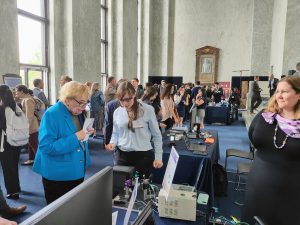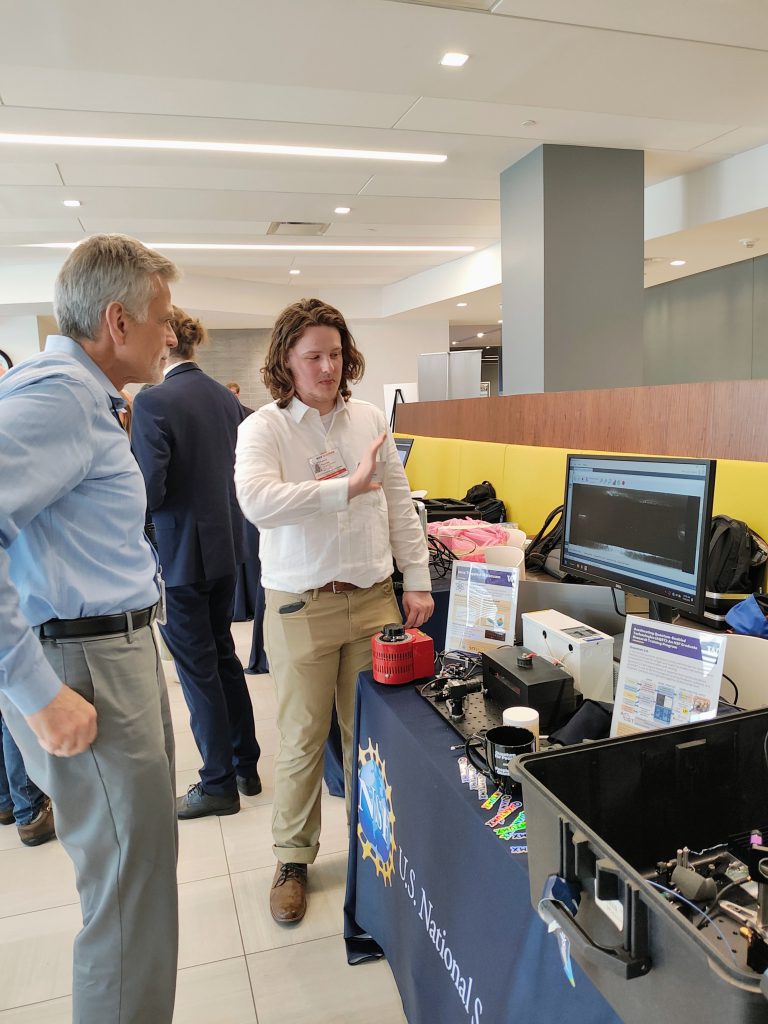May 23, 2024
Faculty and students from the University of Washington’s QuantumX institute recently traveled to Washington, D.C. to participate in a briefing and to showcase their work in quantum information technology to representatives of Congress. The National Science Foundation (NSF) invited researchers and scientists to present to lawmakers, highlighting the importance of quantum information science, engineering and technology.

The UW QuantumX group included: Virginia and Prentice Bloedel Professor in Physics and Electrical & Computer Engineering and director of Accelerated Quantum-Enabled Technologies (NRT: AQET) Kai-Mei Fu , NSF Graduate Research Fellow and AQET Fellow and second year physics Ph.D. student Carson Patterson, and physics and mathematics senior Robert Thomas. Patterson shared her work in in quantum sensing and Thomas demonstrated a macroscopic ion trap, a project he helped design and build in the UW’s Quantum Technologies Training and Testbad lab (QT3), which sponsored his trip.
Fu, Patterson and Thomas presented to lawmakers on the Science, Space and Technology Committee, including Zoe Lofgren, D-Calif. and Frank Lucas, R-Okla. Research and Technology Subcommittee ranking member Haley Stevens, D-Mich., spoke during the briefing along with NSF Director Sethuraman Panchanathan on the importance of funding innovation in emerging technology amid global competition.

“In these early days of quantum technology development, hardware knowledge is essential for software engineers to optimize architectures, efficiently implement algorithms, and correct errors,” said Fu. “The breakthroughs needed in the materials for scalable quantum devices requires materials and device scientists and computer architecture engineers to be trained in quantum information. AQET addresses these needs by training master’s and doctoral students in an interdisciplinary program in quantum information science, engineering and technology (QISET).”
The lawmakers present at the showcase expressed their support for increased NSF funding in QISET.
“It was exciting being there,” said Thomas. “The other people presenting were professors and graduate students from around the country that were eager to share their knowledge about QISET research. Our demos were excitingly interactive and grabbed a lot of attention.”

